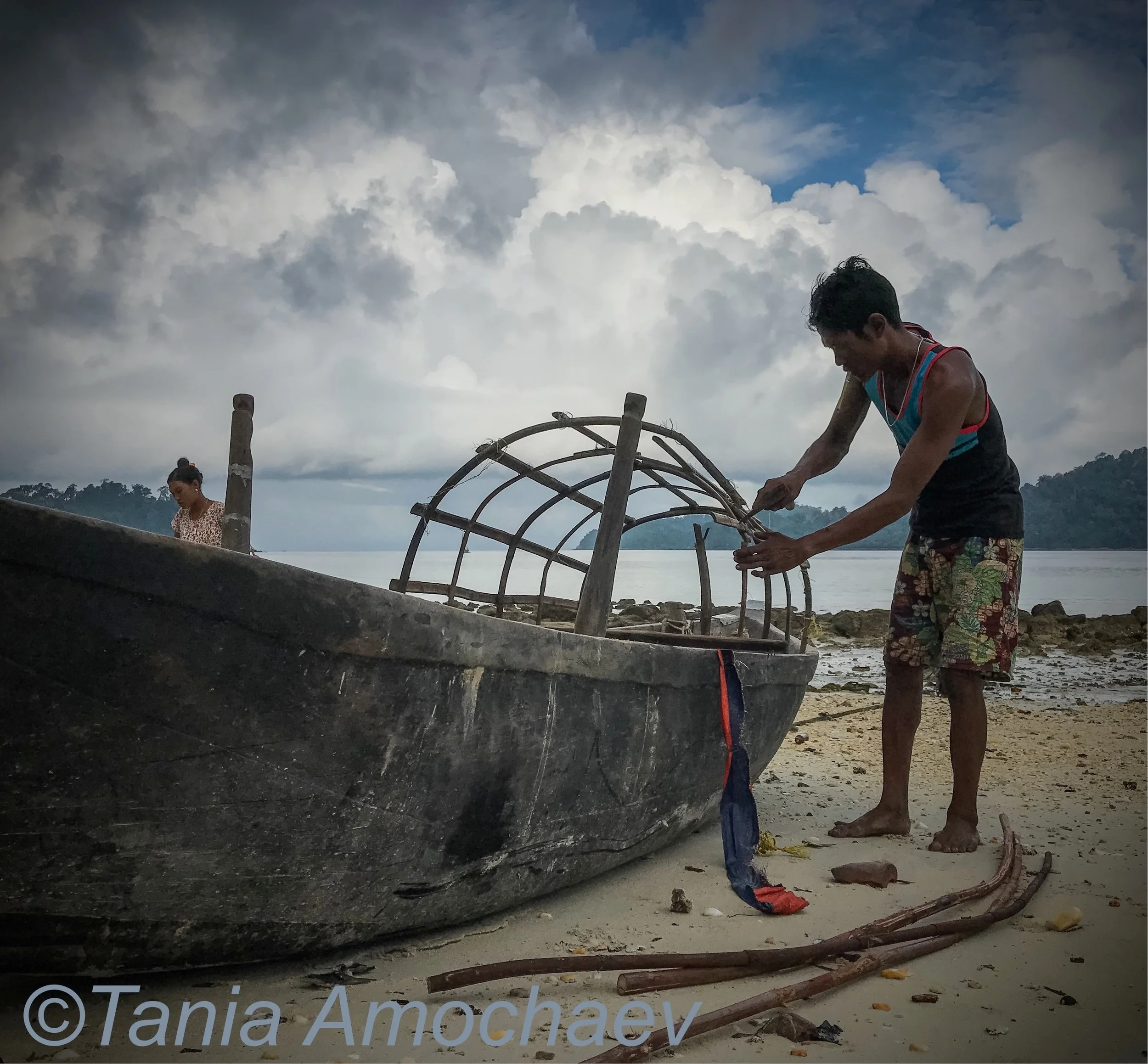Diving into the deep
The Moken—or Sea Gypsies—of Myanmar elusively led us on a seemingly random chase across constantly changing seas. Searching for the gypsies of the waters, we finally understood that the Moken had found a new hideaway. They and their one-time way of life were buried in plain sight—on land—the last nomadic boat abandoned over ten years before.
Gypsies by nature are vagabonds, nomads, people who shift their homes when the environment forces a change. For thousands of years these people, of whom maybe 3,000 now exist, wandered in the Andaman Sea among islands that lie off the coast of today's Myanmar and Thailand. They had long boats with woven palm frond covers to sleep under, and a deft way of leaping, spear first, from the bow into deep waters to reemerge with a fish for the next meal. In monsoon, they would move on shore and harvest the natural bounty of plant life, particularly coconut and a form of betel nut.
Over time, boundaries and governments interfered, as did large motored fishing boats coming from far away to their rich waters. The tsunami in 2004 ruined many boats and structures, although the story of these people's ability to forecast the crushing wave and flee to higher ground is apocryphal in the area.
It's not the first time outside forces shaped the direction of Moken lives. The very name Moken means "drowned in the sea" in their language, and it seems the original people were driven from land by the kingdom building Mon. The Mon were the famed tribe of artists and architects that all current cultures here lay claim to, fighting over a heritage more sophisticated than most. But at the edges of that culture were people, unable to keep fighting for their territory and too restless to adapt, who escaped to uninhabited islands and waterways, beyond the awareness of those building their empire on shore.
Their current evolution will lead to an unknown future. In Thailand tourism is changing the face of their world, but we saw no tourists in our travels in their Myanmar homeland. Most of the men went off to fish in long tail boats powered by propellers. Women rowed closer to shore to set their nets. And there were signs of boat building, including the traditional burning of the bottoms.
We traded drinks for fish with a small fleet of boats resting in a secluded inlet, waiting for the large ships to come purchase their catch and restock their ice. Children rowed out to greet us as our sailing schooner neared shore. And young men were happy to demonstrate their deep diving technique, spear in hand.
As I flew home on election day, I learned upon arriving in Tokyo that I too was leaping into deep uncharted waters.







